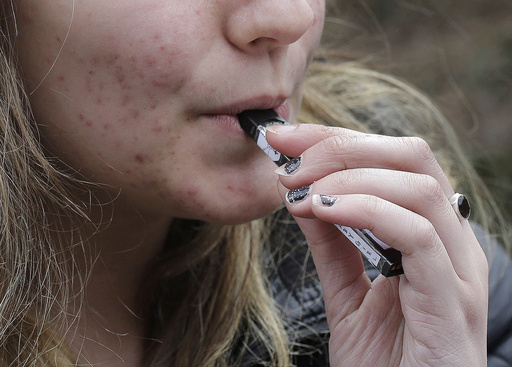
The Supreme Court is set to deliberate on a vaping-related case that involves the actions of federal regulators who have banned flavored vaping products, amid rising e-cigarette usage among adolescents.
This case arises from an appeal made by the Food and Drug Administration (FDA), which has rejected over a million applications from manufacturers wishing to market sweet or fruity flavored vaping products that are particularly appealing to younger audiences.
These regulatory decisions are part of a broader initiative aimed at curbing youth vaping, a campaign which anti-tobacco advocates claim has been successful in reducing the number of young vapers to its lowest rate in ten years, following what they describe as an “epidemic” in usage levels around 2019.
However, several vaping companies are contesting these rulings in court, asserting that the FDA has unfairly overlooked evidence suggesting that their flavored e-liquids do not significantly attract minors. They argue instead that these products could serve as effective smoking cessation aids for adults trying to quit traditional cigarettes.
The case arrives at a pivotal moment before the inauguration of President-elect Donald Trump, who may adopt a different regulatory policy as he has previously expressed intentions on social media to “save” vaping.
While multiple lower courts have denied lawsuits from vaping firms, the 5th Circuit Court of Appeals has sided with Triton Distribution, based in Dallas. This court overturned a previous ruling that barred the sale of flavored nicotine products, such as the “Jimmy The Juice Man in Peachy Strawberry,” which can be vaporized using e-cigarettes to create an inhalable aerosol.
The FDA has faced criticism for its slow response to regulate the rapidly expanding vaping industry, which is now valued in the billions. Although there have been efforts to enforce bans on flavored vapes, many of these products still circulate widely despite their technically illegal status.
The FDA has, however, given the green light to some tobacco-flavored vaping products and has recently authorized its first menthol-flavored e-cigarettes targeted at adult smokers.
According to the Campaign for Tobacco-Free Kids, the prohibition of sweet-flavored vapes, combined with intensified regulatory enforcement, has significantly contributed to the decrease in nicotine consumption among youth, bringing it down to levels not seen in the last decade.
